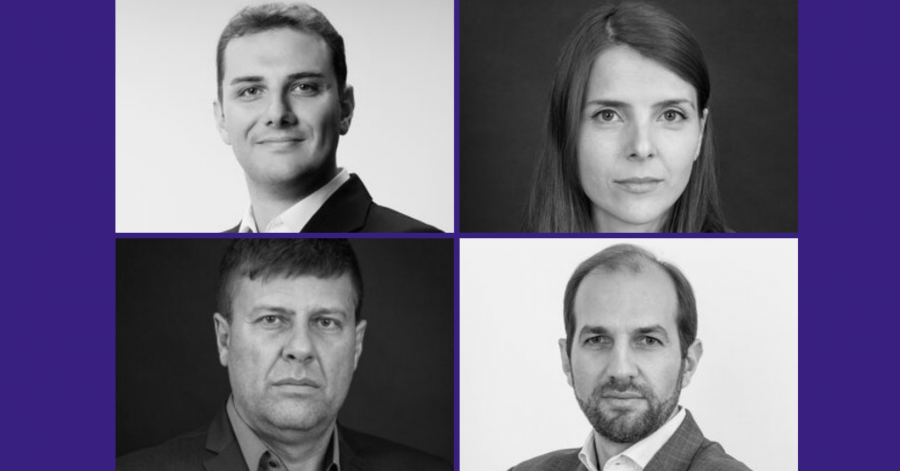Threeding, Ensk.ai, AQUILE, and Neurorehabilitation Robotics are the four new additions to the portfolio of Morningside Hill, one of the newcomers to the Bulgarian venture capital landscape. The four startups received a total amount of around €3M in the recent round of the VC firm.
Morningside Hill was created at the beginning of 2019 as an investment intermediary of the Funds of Funds in Bulgaria (FMFIB). With €38.5M in management and a term of 5 years, the fund is expected to make equity investments in 25 to 30 companies, connected to the Bulgarian market but developing scalable global solutions. The post-seed venture capital fund is industry agnostic and focuses on companies that either have 50% of their revenue, generated in Bulgaria, or at least half of their staff is based in Bulgaria.
Even though the exact amount of the separate investments is undisclosed, the average ticket size of Morningside Hill is between €750K and €3.5M. The average investment is around €1.5M. With notable startups in its portfolio such as biotech Nasekomo and food delivery platform Gastronom.bg, Morningside Hill VC expects to invest in 3-4 more startups by the end of this year.
One of its Managing Partners Pavel Velkov shared with The Recursive what was the investors’ logic behind the funding of the four startups:
“First, all four companies show potential to scale internationally since their products and solutions serve markets, which are wider than the local Bulgarian one. Moreover, the founding teams of the startups are young but experienced entrepreneurs who are ready to deliver results and develop their ideas to a point where they can reach an exit. Third, besides looking for a good ROI, it is important for us to diversify our portfolio and the four startups exemplify that.”
So which are the four new startups, what problems do they solve and what are their plans for the future?
Making football transfers more accurate with AI
With a co-founder, who is both a football aficionado and a data analytics specialist, the idea of Ensk.ai was born out of the desire of Daniel Strahinov to use his skills and knowledge to support his favorite football team. The project started as a hobby, but after the team worked on it for some time, they recognized the potential to turn it into a profitable business.
“My co-founder and I have been involved in the service sector, and we always wanted to work on a product instead. That is why we entered an industry, which is both personally interesting to us and where we can use our expertise to build a product, based on AI algorithms and mathematical models,” shares Strahinov.
The problem that Ensk.ai is trying to solve is to reduce the bias in decision-making in football transfers, by applying data science.. “Despite the fact that the football industry is associated with a lot of money, the decision-makers are not making data-based judgments,” says Strahinov. In order to reduce the risk associated with buying players and signing contracts in football transfers, Ensk.ai uses AI and ML algorithms to assess the sports qualities and financial status of the football players.
Even though Ensk.ai started only around a year and a half ago, they have already gained as clients a couple of football clubs and agencies. “We have become an integral part of the operations of one of the biggest German football agencies, which represent some of the most famous names in the industry,” highlights Strahinov.
The team has bootstrapped their development before receiving this first investment from Morningside Hill/ The latest fundraising round gives them the freedom to focus on business development. Strahinov shares that they will use the investment to accelerate their development and reinforce their presence in the markets they operate in. In the short term, this means expanding their team and increasing their networking capacities and connections with football clubs and agencies. In the longer term, they aim to make their platform available for individual use by the clubs and agencies as a finished product.
+++ Explore the stories of five other sports tech ventures in Southeast Europe.
The eBay of 3D printing
Threeding is a marketplace platform for 3D printable models that allows users and businesses to buy, sell, or exchange models in a secure environment. Back in 2013, when the company was started the founders recognized that there was a gap in the market – personal 3D printers were becoming popular and their potential for commercial use was increasing but the opportunity for full commercialization was hindered by the fact that the end-users depended on the artist and designers and could not design the objects they desired to be 3D printed on a computer.
The idea of Threeding came in 2013 when Stan Partalev and his sister saw a 3D printer for the first time in New York, so after they came back home, they started creating 3D printing models for fun. “We found out that it is difficult and needs to have various sets of skills so not many people can do it. Especially average consumers. So we decided to sell our models but all existing platforms took too high commission rates or did not give a chance for visibility to new designers. So we created our own website and we allowed external designers also to upload and sell their 3D printing art,” shares Partalev.
That is why the platform aims to provide sellers with an opportunity to showcase and make their 3D models available to buyers internationally. The startup has already achieved significant traction as it has become famous with computer-aided designers, tech geeks and a couple of historical and archaeological museums have opened their own stores on the platform to sell models of their exhibits. According to Partalev, the platform ranks somewhere between the 5th and the 7th place within the industry, and they currently have active users from more than 170 countries. The business model of Threeding is similar to that of a typical marketplace and does not charge users for creating a profile or store, uploading products, and sharing 3D printed models, but it charges a commission on the sales made.
Modernizing traditional therapy with robotics
The co-founders of Neurorehabilitation Robotics combined their medical, tech, and business development expertise to identify a solution for a problem they have observed in the rehabilitation industry in Bulgaria. “The process of rehabilitation after nervous problems in Bulgaria is relatively inefficient and this is confirmed by a market analysis that I conducted in regards to Neurorehabilitation Robotics. The therapy is not affordable and it’s not effective because it is completely reliant on the availability of medical personnel and does not incorporate any technology,” shares Simeon Tomov, a co-founder and current CEO.
The goal of their team is to change the traditional way of therapy with the use of robotic technology that can provide on-demand therapy. They also want to utilize the generated data and provide tailored therapy. To achieve that, Neurorehabilitation Robotics uses a mixture of data analytics, a proprietary algorithm, available public data, and data generated by the users of their Robot Assistant devices.
Neurorehabilitation Robotics was started in the middle of the Covid-19 pandemic and currently develops software called Neuropod Rx. According to Tomov, the pandemic accelerated the temps of healthcare delivery adoption, which meant that the robot-assisted therapy solutions of the company attracted increased interest in the local market. “The significance of the investment of Morningside Hill is essential because it provides us with enough operational funds and stability to go on with our R&D efforts and further develop the platform,” shares Tomov. With the latest round, they plan to boost their regional footprint and go outside of the Bulgarian market. They also want to increase the amount of their B2C robotic devices. Another goal of Neurorehabilitation Robotics is to acquire new clinics and finalize the development of their platform in order to make it available for commercial use.
Riding the bio foods wave
AQUILE is a bio foods manufacturing company, based in Plovdiv, which uses innovative technology to make fat-free snacks while preserving all the proteins and good nutrients of the ingredients. Currently, the company produces snacks from rice, buckwheat, and lentils.







